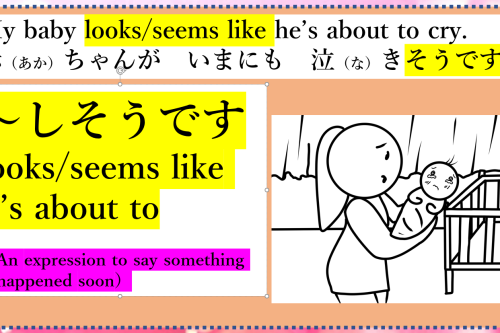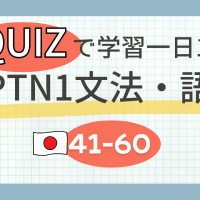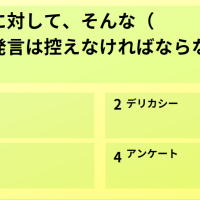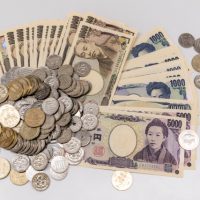Let’s practice using the “~たら” form in Japanese.
We have four different ways to use the “たら” form.
● Case(If) → resolution
● Action/Situation A (past) → next step
● Action A (past) → unexpected thing happens
● Action(た form) → getting the expected result
We use the “たら” form when we say “if~, then….”
Examples:
① If I go to Japan next year I will buy a Nikon camera.
来年(らいねん)日本(にほん)に行ったら、ニコンのカメラを買います。(かいます)
② If I finish work early, I want to go to a movie.
③ We will have a picnic if the weather is nice tomorrow.
明日(あした)晴れたら(はれたら)、ピクニックに行きます。
④ If you are Japanese, then you should be able to write this easy Kanji.
日本人だったら、この簡単な(かんたんな)漢字(かんじ)は 書ける(かける) はずです。
⑤ If you have some free time this weekend, would you like to play tennis?
今週末(こんしゅうまつ)ひまだったら、テニスをしませんか?
⑥ If I had enough money, I would buy a house.
お金がたくさんあったら、家を買います。
Examples:
① When you finish work, please come to my apartment.
仕事が終わったら、うちにきてください。
② When you update your Facebook, please tell me.
フェイスブックにアップしたら、教えてください。
③ When I asked my grandma how to make the stew, she was kind enough to tell me.
祖母にシチューの作り方を聞いたら、祖母はやさしく教えてくれました。
④ I’m going to my hometown during the summer vacation.
夏休みになったら、田舎へいきます。
⑤ I will text you when I get home.
家に帰ったら(かえったら)、メールするね。
Examples:
① When I was cooking, I cut my finger.
料理をしていたら、指を切ってしまいました。
② When I organized the magazines on the desk, I found a library book.
机の上の雑誌を片付けていたら、図書館の本が出てきました。
③ Last week, when I organized my desk drawer, I found my old diary.
先週机の中を整理していたら、古い日記が出てきました。
Examples:
① I took medicine, and then my fever went down immediately
薬を飲んだら、すぐに熱が下がりました。
② When I turned on the air conditioner, it got cool quickly.
エアコンをつけたら すぐに涼しくなりました。
③ I went to the gym every two days, and I lost a kilogram in a month.
一日おきにジムに行ったら、1か月で1キロやせました。











 Yukiko
Yukiko









